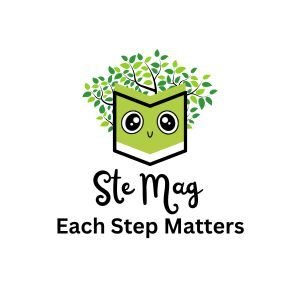Teaching English with Three-Step Interviews in Senior High Schools
Three-Step Interviews is an engaging and interactive instructional strategy that can significantly enhance the teaching and learning experience in senior high school English classrooms. By promoting communication, collaboration, and critical thinking, this method helps students improve their language skills in a dynamic and enjoyable way. This article explores the benefits of Three-Step Interviews, provides a step-by-step guide to implementing it, and shares some practical examples.
Introduction to Three-Step Interviews
The Three-Step Interview is a cooperative learning technique designed to foster active engagement and deep understanding through structured interaction. It involves three main steps:
- Partner A interviews Partner B.
- Partner B interviews Partner A.
- Partners share their findings with another pair or the whole class.
This method not only helps students practice their speaking and listening skills but also encourages them to think critically and reflect on the content.
Benefits of Three-Step Interviews
- Enhanced Communication Skills:
- By participating in interviews, students practice both asking questions and articulating responses, improving their speaking and listening skills.
- Active Engagement:
- The interactive nature of Three-Step Interviews keeps students actively involved in their learning process.
- Critical Thinking:
- Students must think critically about the questions they ask and the answers they give, which promotes deeper understanding.
- Collaboration:
- This technique encourages students to work together, fostering a sense of teamwork and mutual support.
- Confidence Building:
- Regular practice of interviewing and being interviewed helps students build confidence in their language abilities.
Implementing Three-Step Interviews in English Classrooms
- Preparation:
- Choose a topic relevant to the lesson. Prepare a list of open-ended questions related to the topic that students can use during their interviews.
- Step 1: Partner A Interviews Partner B:
- Divide the class into pairs. Partner A interviews Partner B using the prepared questions. Encourage students to take notes during the interview to capture key points.
- Step 2: Partner B Interviews Partner A:
- After a set amount of time, partners switch roles. Partner B now interviews Partner A, again using the prepared questions and taking notes.
- Step 3: Sharing Findings:
- After both interviews are complete, each pair shares their findings with another pair or with the entire class. This step helps consolidate their learning and allows them to hear different perspectives.
Example Activities Using Three-Step Interviews
- Character Analysis:
- After reading a novel or a short story, students interview each other about the motivations, characteristics, and development of different characters. This activity helps deepen their understanding of the text.
- Debate Preparation:
- In preparation for a debate, students interview each other on their viewpoints and arguments related to the debate topic. This helps them refine their arguments and anticipate counterarguments.
- Research Projects:
- When starting a research project, students interview each other about their research questions, methodologies, and expected outcomes. This activity encourages thorough preparation and critical thinking.
Success Stories
Numerous schools have reported positive outcomes from using Three-Step Interviews in their English classes. For example, a senior high school in Oregon found that this technique improved students’ oral communication skills and increased their engagement in class discussions. Another school in New Jersey reported that students became more confident in expressing their ideas and more effective in collaborating with their peers.
Conclusion
Three-Step Interviews is an effective and versatile tool for teaching English in senior high schools. By promoting communication, collaboration, and critical thinking, it enhances student engagement and language proficiency. Teachers looking to create a more interactive and student-centered learning environment should consider incorporating Three-Step Interviews into their instructional strategies.
